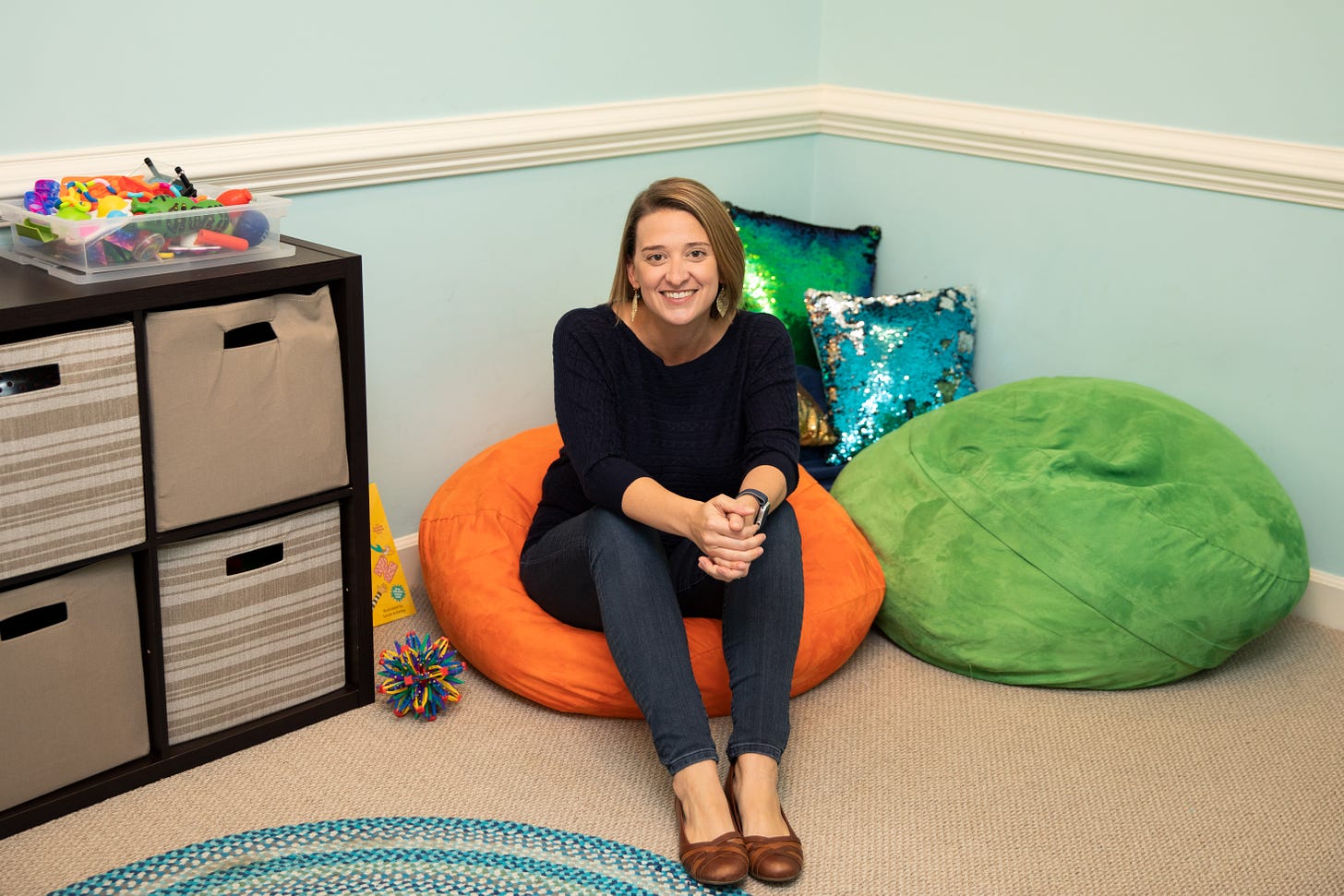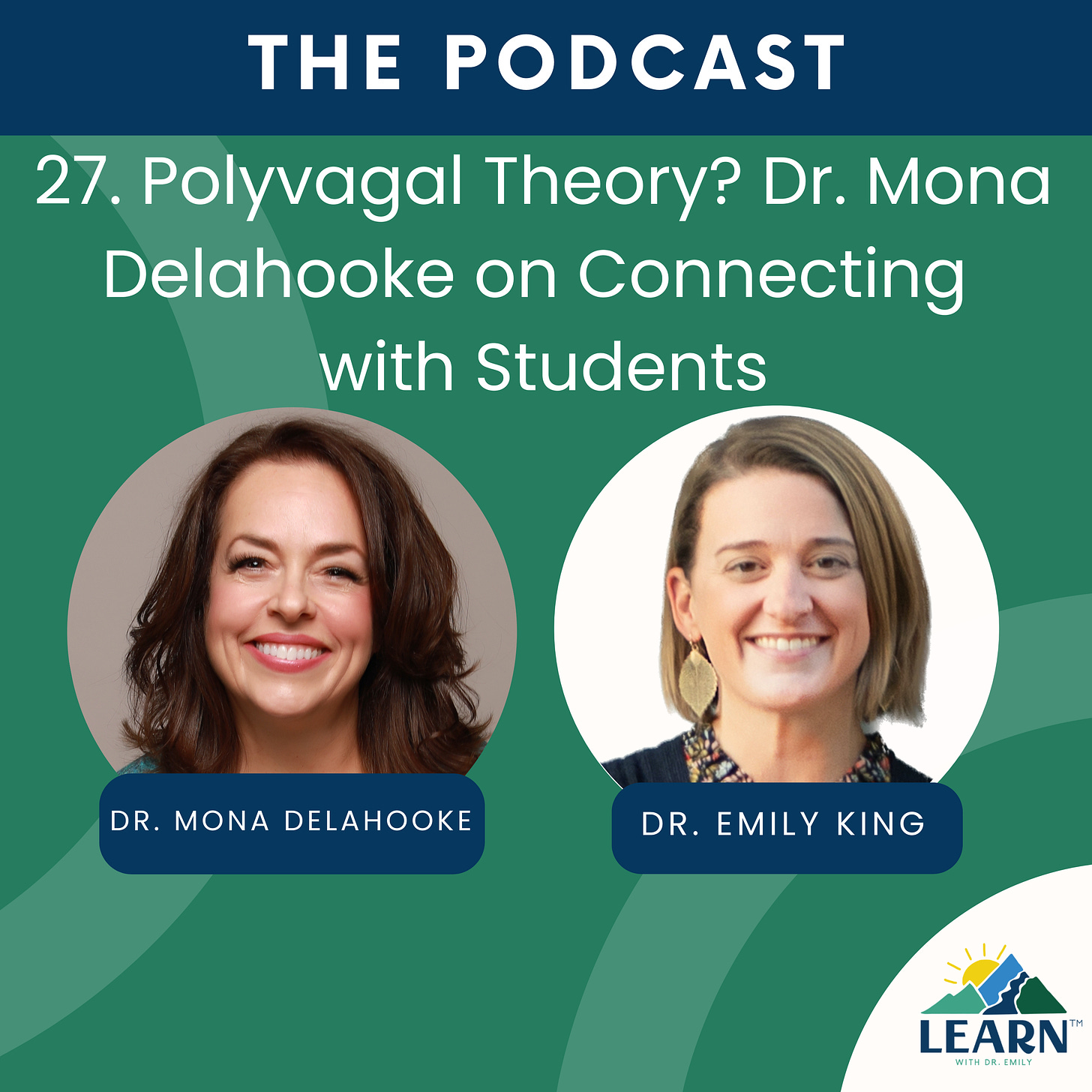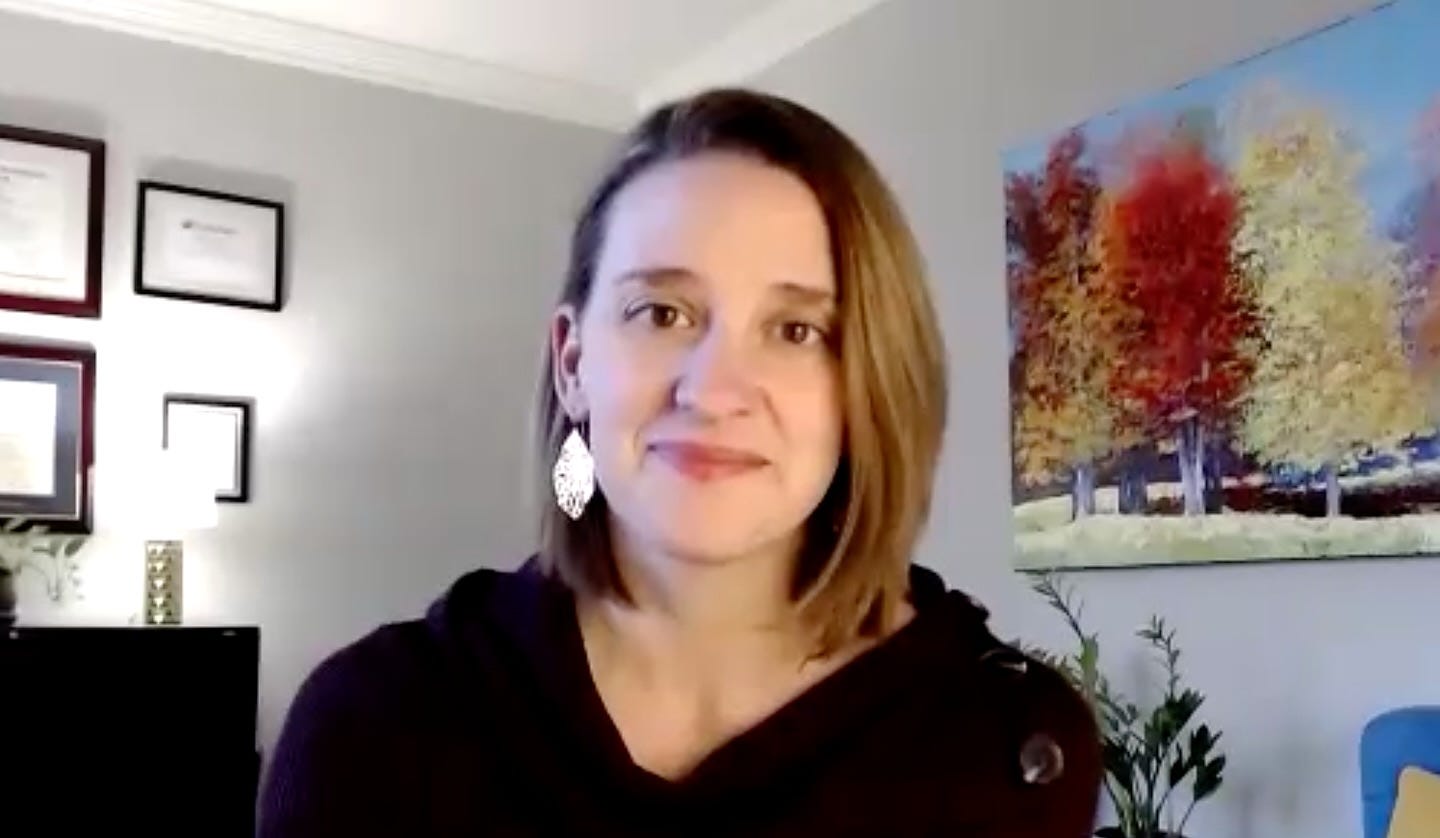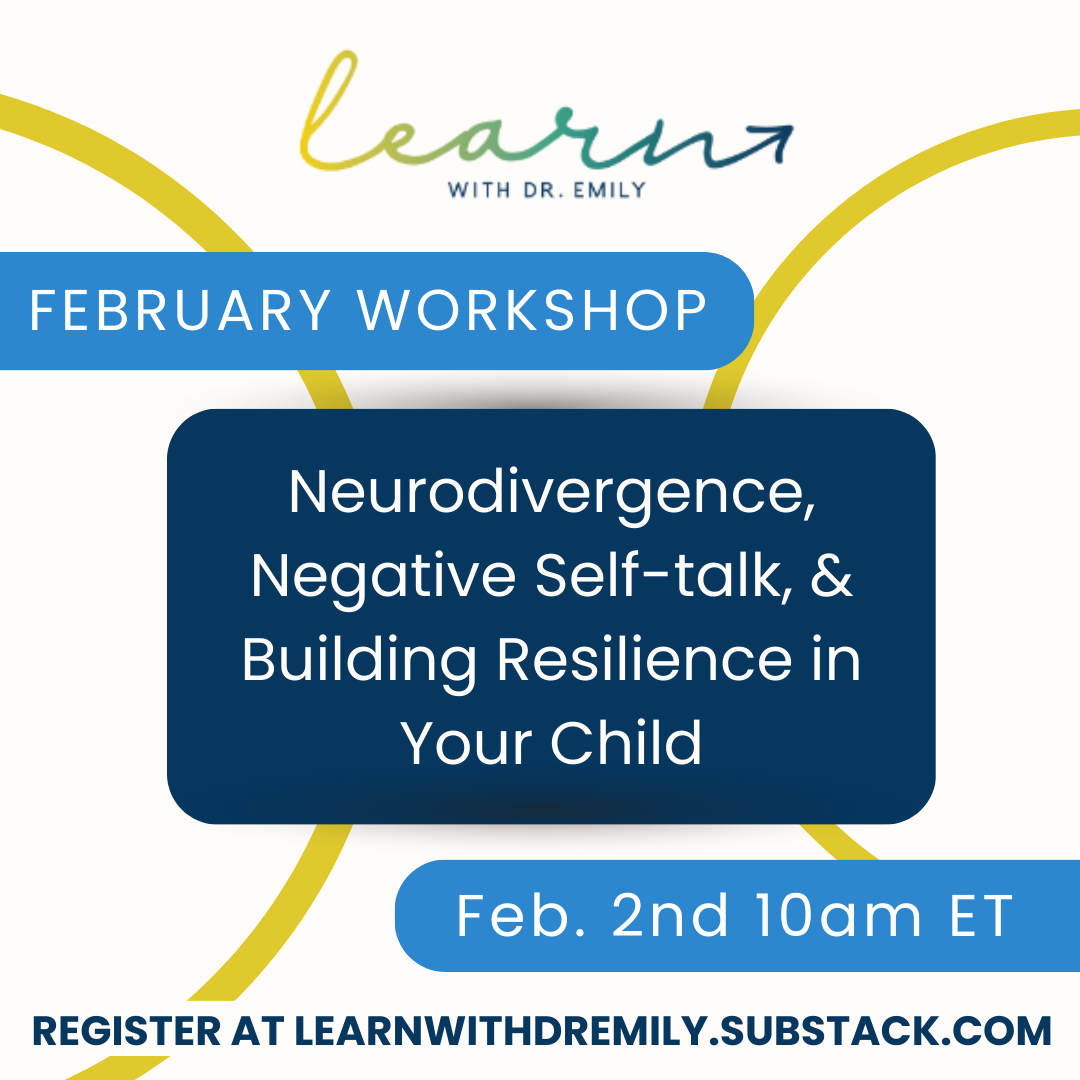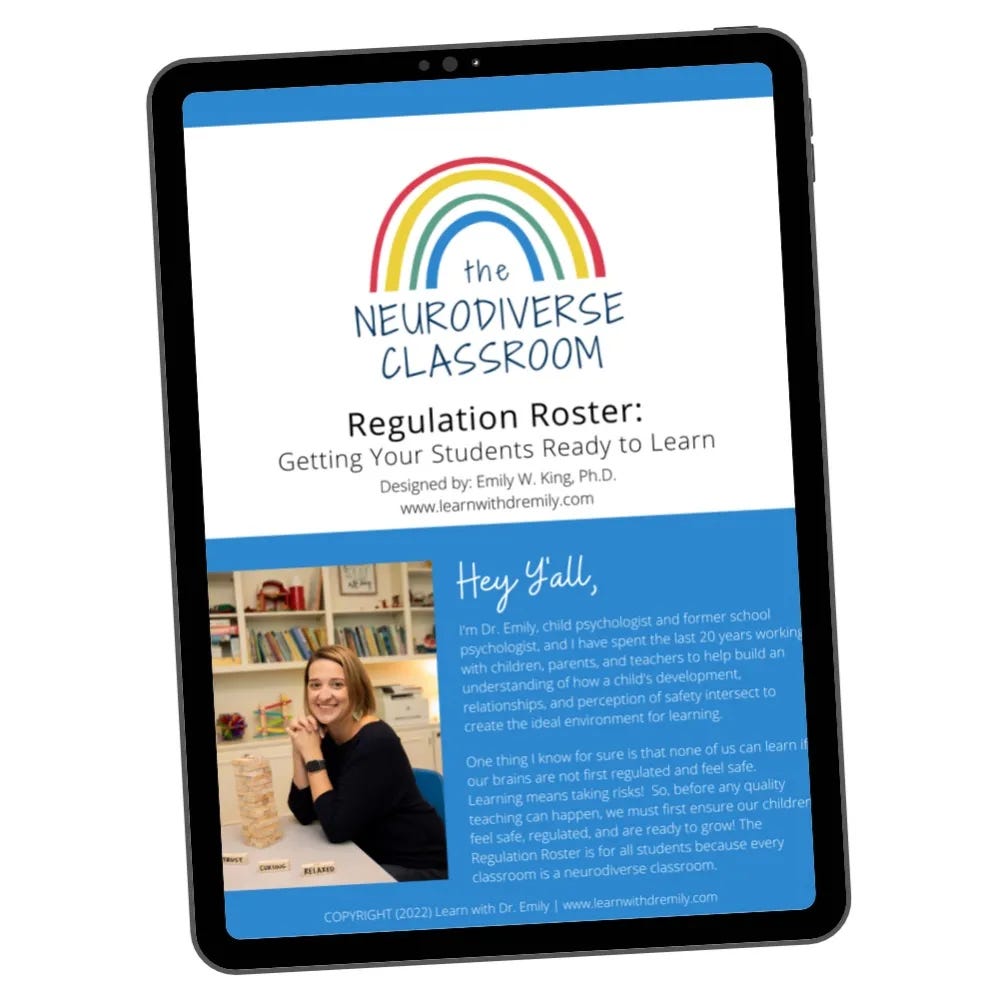Weekly Recap: Why We Are Tired and What To Do About It
+ Welcome to New Subscribers!
Notes from the therapy room…
Hey y’all,
Lots of you are new here this week and I’m so excited to meet you! I’m Dr. Emily, child psychologist and former school psychologist, who shares all that I learn from neurodivergent kids in the therapy playroom with you through my blog, podcast, parent workshops, and professional development trainings for educators.
This week I’m highlighting all the ways we are tired and what to do about it as we continue to strive to be the best we can be for ourselves and our kids. I’m also lifting up my colleague Dr. Mona Delahooke in her continued recovery as I share our podcast conversation of how polyvagal theory can be applied in the classroom. It’s a must-listen for educators! Keep scrolling for links to current and upcoming parent workshops and teacher learning opportunities.
I hope to meet you soon either in the comments, at my parent workshops, or at a professional development training in person!
Let’s keep learning together,
~Dr. Emily
On the blog…
Parents: This is Why We’re Tired
As a child psychologist, my experiences treating children have always been deeply intertwined with also treating families. Children do not exist in a vacuum and neither do their parents. We are all constantly interacting with stressors outside of our homes that make their way into our homes and into our family relationships. These stressors leave us tired.
If you're exhausted, then you are not alone. If we learned one thing from parenting through a global pandemic, it was this: We have a finite amount of energy and we need to pay attention to where we spend it. Situations either drain our energy or replenish it. We must notice the difference and then teach our children to do the same.
On the podcast…
Uplifting the work of Dr. Mona Delahooke
Many of you know that Dr. Mona Delahooke suffered a brain aneurysm in August and has been working hard in her recovery ever since.
This week, I re-shared Mona’s work this week as we continue to talk about safety in relationships and protecting our energy. Please join me in wishing Mona well today as we lift up her work through the magic of podcast sharing while she continues to rest and recover.
Dr. Mona Delahooke is a best-selling author and child psychologist who aims to reduce suffering and increase resilience for children and families.
Her paradigm-shifting model offers a new way of understanding emotional and behavioral challenges, incorporating the latest neuroscience and resilience research to support relationships.
Dr. Delahooke is challenging the education system to update its practices from focusing on behavior to promoting relational safety.
Tune in to episode 27 at the link below:
For parents new to this journey…
Lots of you are new here. Welcome!
One of the ways I help parents is by explaining all the new things you are trying to learn right after your child is diagnosed.
Neurodivergent kids don’t come with a roadmap— so I created one for you. Inspired by all the most-frequently asked questions from parents in the season fo raising neurodivergent kids, I combined the latest on child development and mental health into an on-demand course.
If your child was recently identified as autistic, ADHD, or twice-exceptional, I’m here for you…especially if your head is still swirling after the diagnostic feedback session. It’s going to be ok.
For more info about my parent course and other resources I offer for parents, watch my welcome video below:
Upcoming Parent Workshop…
February’s Parent Workshop: Neurodivergence & Negative Self-Talk is only 2 weeks away and open for enrollment. Register at the link.
Want access to all the parent workshops at a discount?
Upgrade to an all-access membership on Substack to receive access to all monthly workshops and replays. ($450 value). The all-access membership is $275/year.
Resource for teachers….
FREE Regulation Roster
If you are struggling to understand your students’ neurodiverse needs, I have a FREE tool for you!
The Regulation Roster will help you:
Identify how students regulate themselves: Learn what to look for when observing how a student moves, communicates, and socializes with others.
Organize your observations: The Regulation Roster checklist format keeps your student list (and your brain) organized!
Brainstorm what your students need: You know your students first need be regulated to learn. But what does that mean? I’ll explain more and help you know what to look for in student stress responses that interfere with student success.
Connect with each student’s spark for learning: You will have an organized list of student interests and sensory-motor needs all in one class roster, which will help you help your students get ready to learn!
For schools…
Now scheduling professional development for Fall 2024
If you’re a school administrator who loves watching students thrive, but your teachers need more guidance to meet the needs of such a diverse group of learners, I’m here for you.
You’ve provided professional development to support an understanding of social-emotional learning, but your teachers need more coaching on what to do when met with student behavior.
If you’re excited about the opportunity to create a school culture where your entire staff feels confident in supporting the neurodivergent needs and mental wellness of all students, you’re in the right place!




